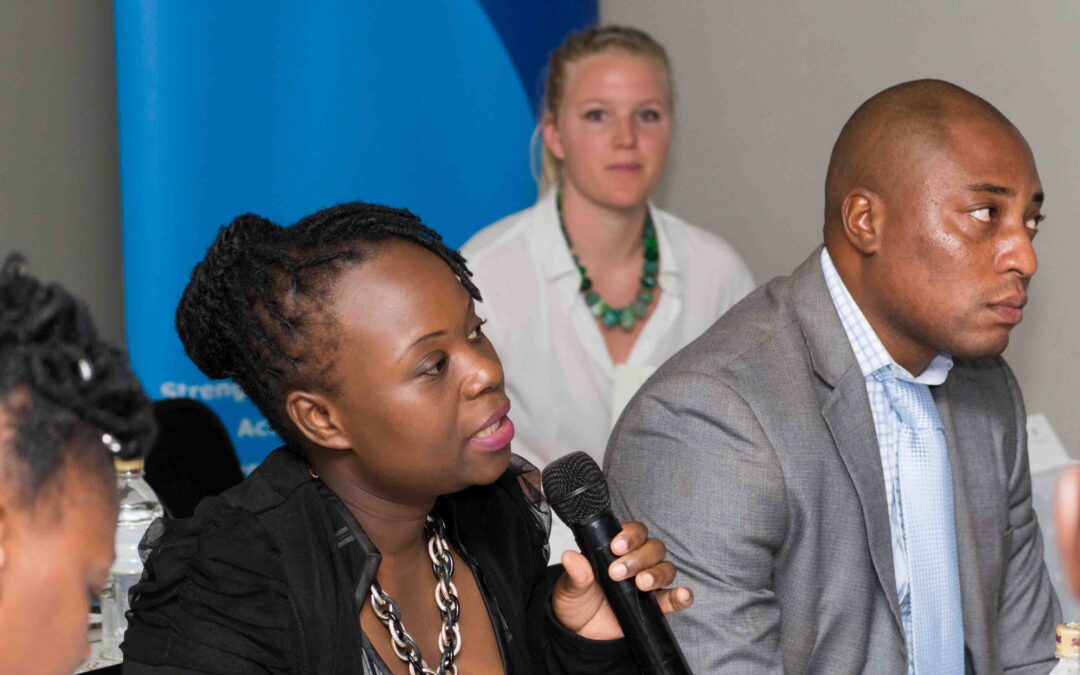
Mar 21, 2017 | News
The National Prosecuting Authority (NPA) held a consultation conference on case and docket management system in Harare on 21 March 2017. The ICJ provided technical support.
The consultation conference was intended to validate findings of the field and desk research conducted in respect of case management in Zimbabwe.
The ICJ engaged consultants reviewed the case and docket management system as it relates to other justice actors such as the judiciary, police, prisons and legal aid providers.
The case and docket management assessment was measured against regional and international comparative standards.
The assessment focused on how case and docket management systems address the rights of vulnerable groups’ including women, unrepresented minors, juveniles and persons with disabilities.
From these consultations and field work, the NPA will be supported with a comprehensive, specific and detailed proposal with practical steps for adopting an improved case and docket management system.
Further, the findings will make recommendations on strengthening the case management system in Zimbabwe and how to address the needs and interests of the various justice sector stakeholders.
The consultation conference was attended by the Acting Prosecutor General, Deputy Prosecutor General, National Director of Public Prosecutions, senior law officers, senior magistrates, clerks (criminal courts), representatives from Zimbabwe Prisons and Correctional Services (ZPCS), Zimbabwe Republic Police (ZRP), and Zimbabwe Human Rights Commission (ZHRC).
Civil society representatives included directors and senior staffers from Zimbabwe Human Rights NGO Forum, Zimbabwe Lawyers for Human Rights (ZLHR) among others.
This consultation was held with financial support from the Foreign Commonwealth Office (FCO) Magna Carta Fund, through the British Embassy in Harare.
Contact
Arnold Tsunga, ICJ Regional Director for Africa, t: +27 716 405 926, e: arnold.tsunga(a)icj.org
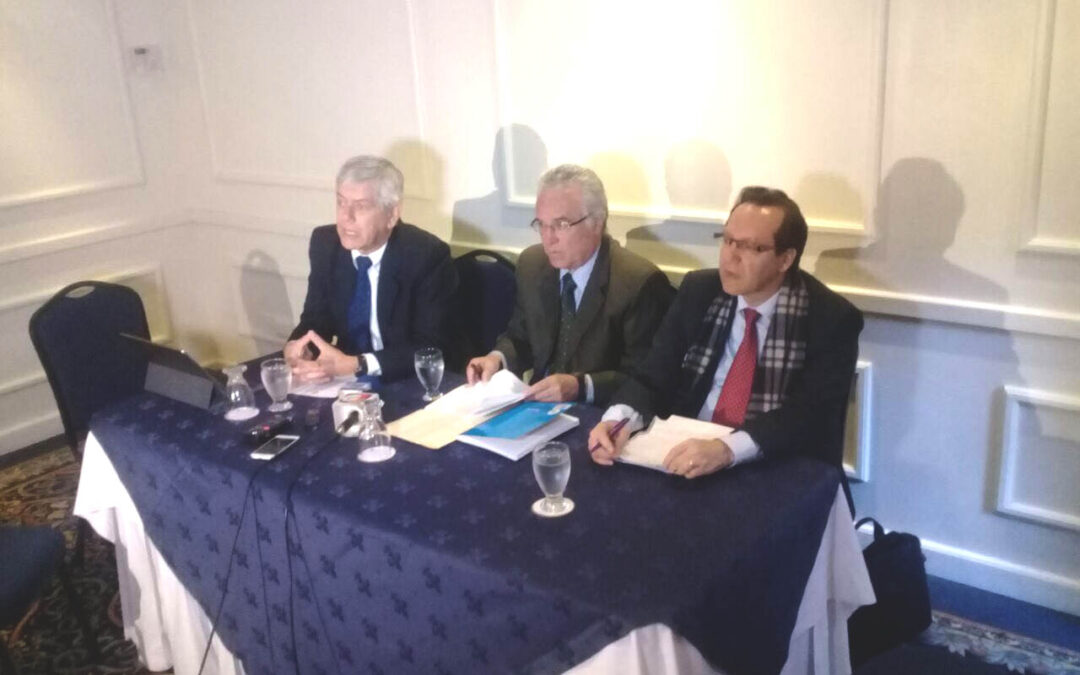
Feb 27, 2017 | News
La visita se enmarcó dentro de los esfuerzos que la CIJ lleva a cabo en distintos países para acompañar procesos de fortalecimiento del Estado de Derecho y respeto de los derechos humanos.
Guatemala-Conclusions of Mission-News-web story-2017-SPA (informe completo, PDF)
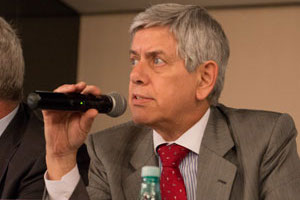
Feb 20, 2017 | News
On Monday 20 February 2017, the ICJ Commissioner Belisário Dos Santos Júnior and the lawyer, Jaime Araíújo Rentería commenced an international mission in Guatemala.
The ICJ Commissioner Belisário Dos Santos Júnior (photo) is the former representative of the Brazilian lawyers’ association at the São Paulo Human Rights Commission, who has acted as the legal representative for political detainees. Jaime Araújo Rentería, former President of the Colombian Constitutional Court is a practicing lawyer and university professor.
The objective of the mission is to evaluate the situation of the legal profession in the country, identify obstacles and challenges, and offer perspectives about ways in which the State can provide better protection for lawyers so they can carry out their functions in an independent and safe manner.
The two mission members will be in Guatemala for a week and will interview the President and Executive Committee of the Bar Association, human rights lawyers, and high-level officials from the three branches of the State, members of the international community and representatives of human rights organizations.
On Friday 24 February, the two lawyers will hold a press conference to present the conclusions and recommendations of the mission to the press and general public.
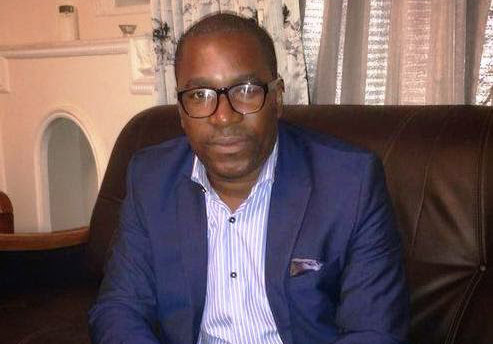
Feb 9, 2017 | News
The ICJ today condemned the arbitrary arrests and incommunicado detention of lawyer Felix Agbor-Balla and Dr. Fontem Aforteka’a Neba. They have been charged with a number of offences involving terrorism; rebellion against the State; incitement of civil unrest and breach of the Constitution.
Felix Agbor-Balla (photo) and Fontem Aforteka’a Neba, respectively President and Secretary General of the Cameroon Anglophone Civil Society Consortium (CACSC), were arrested on 17 January 2017, after the Minister of Territorial Administration banned all activities, meetings and demonstrations of the CACSC and the Southern Cameroon National Council (SCNC).
Since late October 2016, Cameroon has faced a number of demonstrations in several cities in the English-speaking regions of the country.
The protesters have been calling for an end of the use of the French language in courts and schools, among other demands, and the government has accused the two organizations, CACSC and SCNC, of supporting these activities.
The protests began after an indefinite strike by school teachers in the city of Bamenda, by youth protesting against alleged neglect of the Anglophone regions of Cameroon.
Felix Agbor-Balla and Fontem Aforteka’a Neba are currently detained incommunicado at the Yaounde Central Prison in Kondegui, which is far from where family members live. Their trial which had been set for 1 February 2017 was postponed without notice or due cause to 13 February 2017.
The charges they face require evidence establishing that they incited or carried out acts of violence or, that they were the instigators of the protests and demonstrations.
The two were arrested on the same day where they had signed a statement calling for protest activities to be carried out without violence.
If convicted of the charges, the two may face the death penalty.
The ICJ is concerned that the two men are being held incommunicado, in contravention of international standards, where they are vulnerable to ill-treatment.
The ICJ is also concerned at allegations that their charges stem from exercise of their internationally protected human rights, including rights to freedom of expression, association and assembly.
“Detaining the two incommunicado and prolonged detention without access to a judge violates their right to liberty and to a fair trial, which is protected under both international law and the law of Cameroon,” said Arnold Tsunga ICJ Africa Director.
The ICJ considers that Felix Agbor-Balla and Dr. Fontem Aforteka’a Neba should be immediately released.
If there should be reliable and admissible evidence to charge them with a cognizable crime for conduct not protected under human rights law, they should be immediately brought before a judicial authority to determine whether there is a lawful basis for trial and to determine whether they may be released.
In any event they should be removed from incommunicado detention and be granted full access to a lawyer, doctor if necessary, and family members.
Under no circumstances should they be subjected to the possibility of the death penalty.
ICJ further calls on the authorities in Cameroon to comply with their obligations under the treaties to which it is party, including as the African Charter on Human and People’s Rights, International Covenant on Civil and Political Rights.
These treaties guarantee the rights to a fair trial, liberty and freedom of expression, association and assembly, among other rights.
The ICJ opposes the use of the death penalty in all circumstances, as a violation the right to life and freedom from cruel, inhuman or degrading punishment.
The ICJ calls on Cameroon to impose a moratorium on the death penalty, with a view to abolition, in line with repeated calls by the UN General Assembly.
Contact
Arnold Tsunga, ICJ Regional Director for Africa, t: +27 716405926 or +263 777 283 249: e: arnold.tsunga(a)icj.org
Mary Pais Da Silva, Associate Legal Adviser, t: +268 7603 0078, e: mary.paisdasilva(a)icj.org
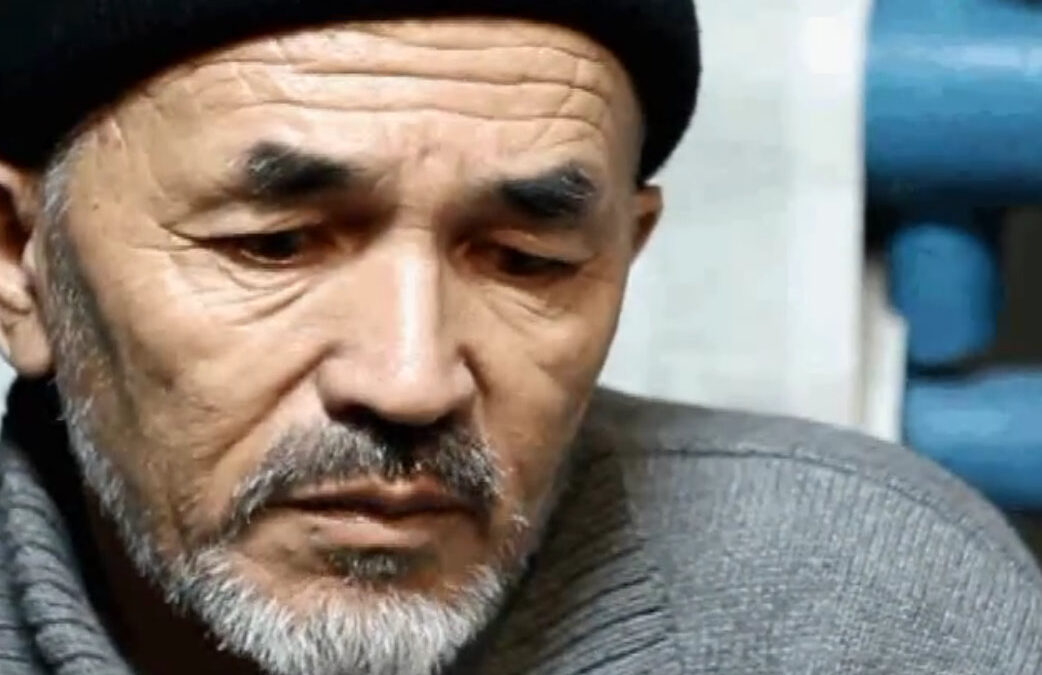
Jan 25, 2017 | News
The decision by the Chuy Regional Court of Kyrgyzstan on 24 January 2017 to uphold the life sentence of human rights defender Azimzhan Askarov constitutes a miscarriage of justice, and has compounded the multiple violations of his human rights, the ICJ said today.
The Court ruling was made in defiance of a decision of the UN Human Rights Committee, which had affirmed these serious violations.
The ICJ calls on the authorities of the Kyrgyz Republic to respect its international human rights obligations in this case.
Azimzhan Askarov (photo) should have access to an immediate and effective appeal against the decision of the Chuy Regional Court.
Violations of his rights should be remedied and just compensation provided.
Azimzhan Askarov was convicted of participation in murder, organization of mass disturbances and incitement to ethnic hatred and sentenced to life imprisonment in 2011, following an unfair trial, arbitrary detention and torture.
The re-hearing of the case before the Chuy Regional Court followed the findings of the UN Human Rights Committee that his arrest, detention and trial breached Kyrgyzstan’s legal obligations under the International Covenant on Civil and Political Rights (ICCPR), including the prohibition on torture or other ill-treatment, the prohibition on arbitrary detention, and the right to fair trial.
The ICJ has closely monitored the case. Representatives of the ICJ observed several court hearings, including during the re-examination.
The ICJ regrets that the re-examination of Azimzhan Askarov’s case did not remedy the violations of his human rights found by the Human Rights Committee.
The court failed to undertake a rigorous study of both defence and prosecution cases.
Rather, it appeared to take the prosecution case at face value, thus undermining the presumption of innocence and the principle of equality of arms.
Many motions of the defence remained unaddressed or were rejected without cause.
These included a motion asking that the findings of the UN Human Rights Committee be evaluated by the Court, as they were crucial for the re-opening the case by the Supreme Court.
The Chuy Regional Court not only failed to examine the findings of the Human Rights Committee, but summarily rejected the Committee’s findings that Azimzhan Askarov had been arbitrarily arrested, held in inhumane conditions and subjected to torture.
The Court in its decision doubted the truth of Azimzhan Askarov’s statement that he had been repeatedly tortured, on the basis that three State psychiatrists concluded that he was “deceitful and subservient” and the defence had not produced witnesses or other evidence to rebut this point.
The Court heard several witnesses who stated that they had initially given false statements implicating Azimzhan Askarov because they were intimidated or subjected to ill-treatment.
The Court did not take any action to investigate these allegations.
During the re-examination of his case Azimzhan Askarov was kept in a metal cage and had no immediate opportunity to speak without hindrance with his lawyer.
Askarov, an Uzbek speaker, visibly struggled to speak in Kyrgyz, but no interpretation was provided for him.
Background
Azimzhan Askarov, a prominent human rights defender, was convicted of murder and incitement to ethnic hatred and sentenced to life imprisonment in December 2011.
The central charges concerned allegations of his participation in a murder of Myktybek Sulayamanov, a police officer, during the 2010 ethnic clashes in the South of Kyrgyzstan.
The ICJ observed the appeal hearing in the case before the Supreme Court on 20 December 2011.
Based on the results of the mission as well as the documents of the case, the ICJ published a detailed report on the arrest, detention and trial of Azimzhan Askarov.
In March 2016, the UN Human Rights Committee issued a decision in regard to Askarov’s complaint and found violations of Articles 7 (freedom from torture), Article 9 (prohibition of arbitrary detention); Article 10 (right to humane treatment in detention), Article 14 (right to a fair trial) of the International Covenant on Civil and Political Rights.
The Human Rights Committee, which in March 2016 heard a complaint brought by Askarov, called for his conviction to be quashed and if necessary a new trial to be held in line with the principles of fair trial, presumption of innocence and other procedural safeguards.
On 12 July 2016, the Supreme Court ordered a further reconsideration of the case on appeal, which resulted in upholding Askarov’s verdict and sentence.
Following the decision of 24 January, the defence said they would appeal this decision of the Chuy Court in the Supreme Court of the Kyrgyz Republic. Kyrgyzstan is a party to the ICCPR and as such is bound by this treaty to guarantee the rights it enshrines and to provide effective remedies when these rights are violated.
The decision of the Committee is an authoritative interpretation of the ICCPR which may serve as evidence in court and whose findings should not be ignored.
Kyrgyzstan-Askarov-failure to remedy-News-Web story-2017-RUS (full text in Russian, PDF)









